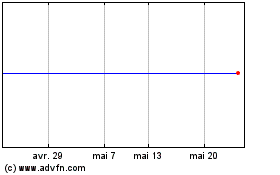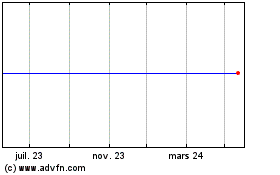Five-year results confirm Roche’s Polivy combination therapy as new
standard of care for previously untreated aggressive lymphoma
- Exploratory long-term follow-up analysis of the phase
III POLARIX study indicated a positive trend in overall survival in
favour of Polivy in combination with R-CHP for people with
first-line diffuse large B-cell lymphoma
(DLBCL)1
- Patients treated with Polivy in combination with R-CHP
required fewer subsequent treatments, potentially reducing burdens
on patients and healthcare systems1
- These encouraging five-year results continue to
highlight the potential of this Polivy combination to improve
outcomes in first-line DLBCL, an area that previously had little
advancement in nearly two decades
Basel, 8 December 2024 - Roche (SIX: RO, ROG; OTCQX: RHHBY)
announced today data from a five-year follow-up of the pivotal
phase III POLARIX study evaluating Polivy® (polatuzumab vedotin) in
combination with MabThera®/Rituxan® (rituximab), cyclophosphamide,
doxorubicin and prednisone (R-CHP) in people with untreated diffuse
large B-cell lymphoma (DLBCL). Data were presented in an oral
session at the 66th American Society of Hematology (ASH)
Annual Meeting and Exposition, 7-10 December 2024 in San Diego, US.
This latest analysis conducted after a median follow-up of 60.9
months, includes descriptive data on primary and secondary
endpoints, as well as safety results.1
“POLARIX was the first trial to elevate treatment standards for
frontline diffuse large B-cell lymphoma in 20 years and we are
additionally encouraged by the five-year follow-up results,” said
Levi Garraway, MD, PhD, Roche’s Chief Medical Officer and Head of
Global Product Development. “More than 38,000 people worldwide have
been treated with Polivy in combination with R-CHP and these data
continue to underscore its potential to improve outcomes for people
diagnosed with this aggressive lymphoma.”
Follow-up exploratory analysis after five-years indicated a
positive trend in overall survival (OS) in the intent-to-treat
(ITT) population in favour of Polivy in combination with R-CHP
compared to MabThera/Rituxan plus cyclophosphamide, doxorubicin,
vincristine and prednisone (R-CHOP). Results showed a trend in
reduction in the risk of death (HR 0.85; 95% CI: 0.63–1.15) for
people with previously untreated DLBCL with the Polivy combination,
an improvement on the three-year follow-up data (HR 0.94; 95% CI:
0.67–1.33). The five-year analysis of POLARIX indicates that the
full difference in OS between treatment arms has yet to be observed
and an additional two years of follow-up will
continue.1
“Diffuse large B-cell lymphoma is a notoriously challenging
cancer to treat, however, Polivy in combination with R-CHP has
shown to be a critical advance for patients by helping to reduce
relapse and disease progression,” said Gilles Salles, MD, PhD,
Chief of Lymphoma Service, Division of Hematological Malignancies,
Memorial Sloan Kettering Cancer Center, US. “The survival trend
seen in this follow-up analysis reinforces the potential impact of
frontline treatment with Polivy in combination with R-CHP and its
role as a standard of care therapy.”
In addition to the positive trend in OS, an observational
analysis suggested nearly 25% fewer follow-up treatments such as
radiation, systemic chemotherapy and CAR-T cell therapy were needed
in patients receiving Polivy in combination with R-CHP compared to
those treated with R-CHOP (38.3% vs 61.7%).1 Based on
findings from a previous economic analysis which found that total
healthcare costs increased with each additional line of treatment
in relapsed or refractory DLBCL, a reduction in the number of
subsequent therapies could potentially alleviate some of the
burdens associated with relapse and disease
progression.2
At five years of follow-up, benefits in progression-free
survival and disease-free survival with Polivy in combination with
R-CHP were maintained, consistent with the three-year follow-up
data, reinforcing the potential of Polivy in combination with R-CHP
to provide durable and lasting remissions. The latest follow-up
data also showed a numerical reduction in death related to
patients’ lymphoma in those treated with Polivy in combination with
R-CHP compared to those treated with R-CHOP (9.0% vs 11.4%). The
safety profile remains consistent with the known profiles of the
individual study medicines with no new safety signals observed,
reinforcing the positive benefit-risk profile of this Polivy
combination.1
Results from an expanded cohort of 1,000 patients including
global and Chinese patients demonstrated comparability to the
global ITT population.1
Polivy in combination with R-CHP is currently approved for the
treatment of first-line (1L) DLBCL in more than 90 countries
worldwide including the US, countries throughout the EU, the UK,
Japan, Canada and China. Roche continues to work with health
authorities around the world to bring this treatment regimen to
even more patients.
Roche aims to offer various treatment options for DLBCL that
meet the diverse needs of patients and healthcare systems. In an
effort to elevate treatment standards even further, Roche is
exploring Polivy in combination with other molecules including its
bispecific antibodies. Studies include the phase III SUNMO trial
evaluating the efficacy and safety of subcutaneously administered
Lunsumio® (mosunetuzumab) in combination with intravenous (IV)
Polivy versus IV MabThera/Rituxan plus gemcitabine and oxaliplatin
(R-GemOx) in second-line or later DLBCL, and the phase III SKYGLO
trial investigating the efficacy of Polivy in combination with
R-CHP and Columvi® (glofitamab) versus Polivy in combination with
R-CHP in 1L DLBCL.
About the POLARIX
study
POLARIX [NCT03274492] is an
international phase III, randomised, double-blind,
placebo-controlled study evaluating the efficacy, safety and
pharmacokinetics of Polivy® (polatuzumab vedotin) plus
MabThera®/Rituxan® (rituximab), cyclophosphamide, doxorubicin, and
prednisone (R-CHP) versus rituximab, cyclophosphamide, doxorubicin,
vincristine and prednisone (R-CHOP) in people with previously
untreated diffuse large B-cell lymphoma (DLBCL). Eight-hundred and
seventy-nine patients were randomised 1:1 to receive either Polivy
plus R-CHP plus a vincristine placebo for six cycles, followed by
MabThera/Rituxan for two cycles; or R-CHOP plus a Polivy placebo
for six cycles, followed by two cycles of MabThera/Rituxan. The
primary outcome measure is progression-free survival (PFS) as
assessed by the investigator using the Lugano Response Criteria for
malignant lymphoma. PFS is a clinically meaningful
disease-related outcome for patients with previously untreated
DLBCL as it represents the goal of first-line therapy: decreasing
the risk of disease worsening. Overall survival is a secondary
endpoint in the POLARIX study.
About diffuse large B-cell lymphoma (DLBCL)
DLBCL is the most common form of non-Hodgkin lymphoma (NHL),
accounting for about one in three cases of NHL.3 DLBCL
is an aggressive (fast-growing) type of NHL. While it is generally
responsive to treatment in the frontline, as many as 40% of people
will relapse or have refractory disease, at which time salvage
therapy options are limited and survival is short. 4,5
Improving treatments earlier in the course of the disease and
providing much needed alternative options could help to improve
long-term outcomes. Approximately 160,000 people worldwide are
estimated to be diagnosed with DLBCL each year.1,6
About Polivy® (polatuzumab vedotin)
Polivy is a first-in-class anti-CD79b antibody-drug conjugate
(ADC). The CD79b protein is expressed specifically in the majority
of B-cells, an immune cell impacted in some types of non-Hodgkin
lymphoma (NHL), making it a promising target for the development of
new therapies. Polivy binds to cancer cells such as CD79b and
destroys these B-cells through the delivery of an anti-cancer
agent, which is thought to minimise the effects on normal cells.
Polivy is being developed by Roche using Pfizer ADC technology and
is currently being investigated for the treatment of several types
of NHL.
About Roche in haematology
Roche has been
developing medicines for people with malignant and non-malignant
blood diseases for more than 25 years; our experience and knowledge
in this therapeutic area runs deep. Today, we are investing more
than ever in our effort to bring innovative treatment options to
patients across a wide range of haematologic diseases. Our approved
medicines include MabThera/Rituxan, Gazyva®/Gazyvaro®
(obinutuzumab), Polivy, Venclexta®/Venclyxto® (venetoclax) in
collaboration with AbbVie, Hemlibra® (emicizumab), PiaSky®
(crovalimab), Lunsumio® (mosunetuzumab) and Columvi® (glofitamab).
Our pipeline of investigational haematology medicines includes
T-cell engaging bispecific antibody cevostamab, targeting both
FcRH5 and CD3 and Tecentriq® (atezolizumab). Our scientific
expertise, combined with the breadth of our portfolio and pipeline,
also provides a unique opportunity to develop combination regimens
that aim to improve the lives of patients even further.
About Roche
Founded in 1896 in Basel, Switzerland, as one of the first
industrial manufacturers of branded medicines, Roche has grown into
the world’s largest biotechnology company and the global leader in
in-vitro diagnostics. The company pursues scientific excellence to
discover and develop medicines and diagnostics for improving and
saving the lives of people around the world. We are a pioneer in
personalised healthcare and want to further transform how
healthcare is delivered to have an even greater impact. To provide
the best care for each person we partner with many stakeholders and
combine our strengths in Diagnostics and Pharma with data insights
from the clinical practice.
For over 125 years, sustainability has been an integral part of
Roche’s business. As a science-driven company, our greatest
contribution to society is developing innovative medicines and
diagnostics that help people live healthier lives. Roche is
committed to the Science Based Targets initiative and the
Sustainable Markets Initiative to achieve net zero by
2045.
Genentech, in the United States, is a wholly owned member of the
Roche Group. Roche is the majority shareholder in Chugai
Pharmaceutical, Japan.
For more information, please visit www.roche.com.
All trademarks used or mentioned in this release are protected
by law.
References
[1] Gilles S, et al. Five-Year Analysis of the POLARIX Study:
Prolonged Follow-up Confirms Positive Impact of Polatuzumab Vedotin
Plus Rituximab, Cyclophosphamide, Doxorubicin, and Prednisone
(Pola-R-CHP) on Outcomes. Presented at: ASH Annual Meeting and
Exposition; 2024 Dec 7-10; San Diego, CA, USA. Abstract #469.
[2] Gatwood J, et al. Total cost of care in Relapsed/Refractory
(R/R) Diffuse Large B-Cell Lymphoma (DLBCL). Presented at: ASH
Annual Meeting and Exposition; 2022, Dec 10-13. Abstract #3527
[3] Cancer.Net. Lymphoma - Non-Hodgkin: Subtypes. [Internet;
cited December 2024]. Available from:
https://www.cancer.net/cancer-types/lymphoma-non-hodgkin/subtypes
[4] Sehn LH, et al. Diffuse Large B-Cell Lymphoma. N Engl J Med.
2021;384(9):842-858.
[5] Maurer MJ, et al. Event-free survival at 24 months is a robust
end point for disease-related outcome in diffuse large B-cell
lymphoma treated with immunochemotherapy. J Clin Oncol.
2014;32:1066-73.
[6] World Health Organization. Numbers derived from GLOBOCAN 2022.
Non-Hodgkin Lymphoma Factsheet [Internet; cited December 2024].
Available from:
https://gco.iarc.who.int/media/globocan/factsheets/cancers/34-non-hodgkin-lymphoma-fact-sheet.pd.
Dr. Salles has financial interests related to Roche and
Genentech.
Roche Global Media
Relations
Phone: +41 61 688 8888 /
e-mail: media.relations@roche.com
Hans Trees,
PhD
Phone: +41 79 407 72 58 |
Sileia
Urech
Phone: +41 79 935 81 48
|
Nathalie
Altermatt
Phone: +41 79 771 05 25 |
Lorena
Corfas
Phone: +41 79 568 24 95
|
Simon
Goldsborough
Phone: +44 797 32 72 915 |
Karsten
Kleine
Phone: +41 79 461 86 83
|
Nina
Mählitz
Phone: +41 79 327 54 74 |
Kirti
Pandey
Phone: +49 172 6367262
|
Yvette
Petillon
Phone: +41 79 961 92 50 |
Dr Rebekka
Schnell
Phone: +41 79 205 27 03 |
Roche Investor Relations
Dr Bruno
Eschli
Phone: +41 61 68-75284
e-mail: bruno.eschli@roche.com |
Dr Sabine
Borngräber
Phone: +41 61 68-88027
e-mail: sabine.borngraeber@roche.com
|
Dr Birgit
Masjost
Phone: +41 61 68-84814
e-mail: birgit.masjost@roche.com |
|
Investor Relations North America
Loren
Kalm
Phone: +1 650 225 3217
e-mail: kalm.loren@gene.com
|
|
- 08122024_POLARIX 5-year data_en


Roche (LSE:0QQ6)
Graphique Historique de l'Action
De Déc 2024 à Jan 2025

Roche (LSE:0QQ6)
Graphique Historique de l'Action
De Jan 2024 à Jan 2025
